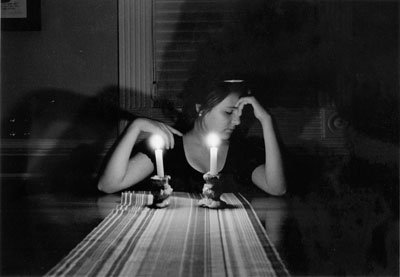All Nonfiction
- Bullying
- Books
- Academic
- Author Interviews
- Celebrity interviews
- College Articles
- College Essays
- Educator of the Year
- Heroes
- Interviews
- Memoir
- Personal Experience
- Sports
- Travel & Culture
All Opinions
- Bullying
- Current Events / Politics
- Discrimination
- Drugs / Alcohol / Smoking
- Entertainment / Celebrities
- Environment
- Love / Relationships
- Movies / Music / TV
- Pop Culture / Trends
- School / College
- Social Issues / Civics
- Spirituality / Religion
- Sports / Hobbies
All Hot Topics
- Bullying
- Community Service
- Environment
- Health
- Letters to the Editor
- Pride & Prejudice
- What Matters
- Back
Summer Guide
- Program Links
- Program Reviews
- Back
College Guide
- College Links
- College Reviews
- College Essays
- College Articles
- Back
Threats MAG
Is it a surprise when the Jewish queer kid says they’re afraid of Nazis? Does it require an explanation? Each title is a headturner, but I sometimes wonder if more people flinch at the words “Jewish” or “queer” than they do at “Nazi.”
The kid at fencing practice didn’t bother to whisper about a yoga stretch that looked like a swastika and proceeded to try to mimic it. “It’s just a joke,” he said when I glared. “Relax.” When did those words become so casual? On the train home, the same boy spoke of how he’d never flirt with a Jewish girl: “Too big of a nose. I’d never be able to kiss her with that thing on her face.”
I learned only when I arrived at high school that it wasn’t a universal experience for strangers to ask to touch your hair and sometimes proceed to without asking. I learned that same year why my elementary school teachers always responded with, “obviously,” or “of course, you do,” when I said I wanted to be a doctor when I grew up.
I didn’t know what the boy in gym class meant by the word “kike” until he threw some change on the ground and said, “Watch all the Jews dive for these.” And I had forgotten until fourth period epidemiology about the boy with the leather jacket and notebook full of swastikas. The topic at hand was ethics; a classmate easily shared concentration camps as an example. I watched a room of calm faces, unaware of my own tense shoulders until my friend, sitting next to me, reached for my hand and asked if I was all right.
I learned what that spidery-looking red and black symbol meant when I was nine. My brother was drawing and had done it by accident. Neither of us knew why our father looked horrified when he saw the image, or why his hand flew to his mouth and he had to sit down and close his eyes with some unseen pain before explaining with a shaking voice what a Nazi was.
There was Charlottesville last summer. The name of the town is enough information for any of my peers to know the event it refers to. I remember the many texts I received from worried family and friends who begged me not to go to the follow-up Boston protest.
“It’s not your responsibility,” they said. If not mine, then whose? Was the man in the yarmulke holding a sign that read “Never Again” not worth my time? Should the woman who cried with joy at the sight of my grandfather’s tallit have minded her own self?
“You’ll get hurt,” said my brother, who was planning himself to go. “You look a lot more Jewish than I do. It’s your hair. It’s your nose.” Looking like a white Christian did not help Heather Hayer. Would appearing indifferent to the situation give any assurance to anyone?
“I don’t want you exposed to that kind of violence,” said my parents. The news of another death of a young black man played behind them on the TV. Up next: Antisemitism on the rise across Europe, worst time since the Nazis.
I thought dystopian scenarios only happened in books.

Similar Articles
JOIN THE DISCUSSION
This article has 0 comments.

I picked up this one word prompt from the Sunflower